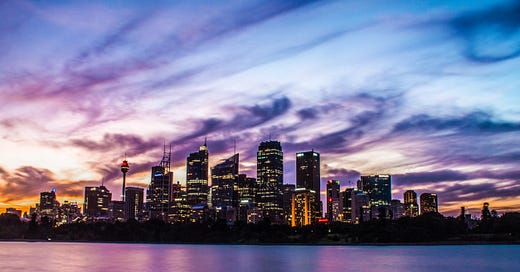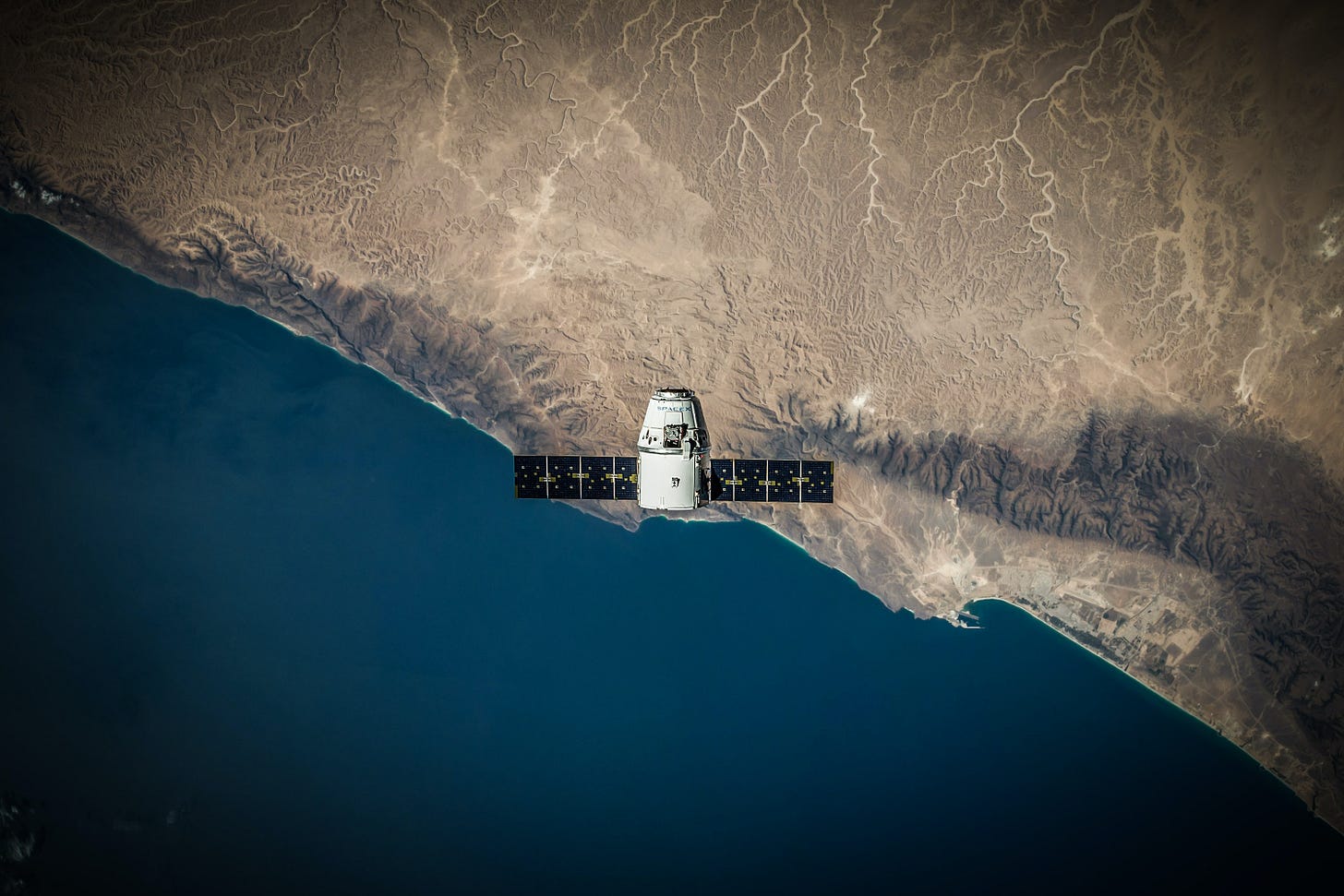37 / Post-Pandemic Cities. Mistakes. Farming. Capital.
Frank Lloyd Wright would have some insights for post-pandemic cities.
Welcome back to Circle Three!
A month ago I created a new system for writing and publishing the newsletter. It's been smooth and made it way simpler to have visibility over my process week to week. Notion software has been the backbone of it all. If you're curious, give a shout!
"Making mistakes is better than faking perfection." — Sindhu Shivaprasad
Short and powerful. It incorporates a growth mindset: mistakes help us learn over the long term. I appreciate the reminder to embrace imperfection and feedback. What is a mistake you've made recently?
Need help with something? Want to create a stronger connection during networking opportunities? Simply feel lost? There's a 5-word phrase that can help build bridges and strengthen trust in relationships. Read about the phrase and the science behind it.
Vertical farming is a sustainable solution for feeding our growing population. In London, some of that farming happens 10 stories underground in a bomb shelter. It was an amazing process to get to this point, and has proven incredibly successful! Read about the company innovating its way to growth.
You can support my IRONMAN fundraiser. I’ve been pushed physically and mentally over the last year for so many reasons. I sit here thankful for the lessons learned while training: grit and exploration to name a couple. I’m registered for IRONMAN Maryland as part of the IRONMAN Foundation team. I want to give back to the foundation because it is on a mission to pass on those same lessons that I’ve learned.
Have you ever seen a satellite flying overhead at thousands of miles per hour? Whether you have before or have always wanted to, you can use this website to know exactly when you can see the International Space Station.
Having someone's email gives you direct access to his or her inbox and life. Hunter.io is a way to find professional email addresses quickly, for anyone. It's a useful tool for salespeople, college students, and those looking to expand a network.
Cities and Tech, with an 1867 Twist
A present-day look at Frank Lloyd Wright's thoughts on culture, cities be damned.
(Read this online here.)
Frank Lloyd Wright, a bit of an egotist, would undoubtedly have some ideas for the ubiquitous work-from-home policies the pandemic has left us.
One of the homes he designed recently went up for sale, and brought to mind some of his ideas that upon revisiting seem ever relevant today in this post-pandemic age. Travel has returned, and I sit here optimistically intrigued by the rapid pace of technological adaptation brought about by the pandemic. (I would not have been able to write that sentence a year ago.)
Wright has some generations-old lessons that we can learn from today.
Even in the 1930s, he noticed the technological changes taking place. Specifically, he noticed technology's potential to create real connections.
"There was a time during the Middle Ages when [the city] was the only source of culture. There was no way of acquiring this thing we call culture except by direct contact."
Wright was ahead of his time when he saw how people were connected through television, automobiles, and radio. No longer did people need to be in close proximity to be connected. According to Wright circa 1930, "it's no longer essential for people to crowd together anywhere."
He didn't see a future for cities. The Usonia homes that represent Wright's ideals are scattered around the U.S. today. "Wright believed," says Roman Mars on 99% Invisible podcast, "the way to build a better American culture was not en masse, but to make it catered to the individual. Our forefathers struck that idea when they declared that the individual is sovereign."
Wright coined the term Usonia, referring to his vision of new, individual homes and architecture. His homes were physical manifestations of his beliefs in individuality, with an understanding that technology connected people across distances.
Culture and connection can be deeply felt regardless of physical distance because we are so digitally entwined.
The internet has created cultures and communities that span the globe, from niche groups to the billions-strong social networks. The history of internet culture is long and "absurd," but that doesn't make the internet any less of a tool for connecting.
Individuality is an American ideal, but more than ever the pandemic has also shown the importance of physical connection. We can get lots accomplished as connected individuals. But physical closeness is equally important.
Much to Frank Lloyd Wright's chagrin, cities are here to stay, but in a different, slightly more disjointed form. Populations have declined, with New York City losing an estimated 110,000 people during 2020; people seem more likely to opt for a night in or have realized they've grown to like a mellower lifestyle; we've even become accustomed to walking on "stand here" stickers spaced 6 feet apart. These new norms will linger, especially in urban centers, with highly-opinionated CEOs.
We have ample opportunities to contact cultures new and old in person, from travel across borders to walking down to the nearest bar. Frank Lloyd Wright realized generations ago how technology can unlock a culture that parallels the American ideal of independent individualism. We find ourselves considering how to engage with this new idea of culture, and leaving space for true in-person connection.
🐦 Tweeting:


🔊 Listening: New Bleachers album!
📖 Reading: The Bitcoin Standard (aff. link)
➕ Win: Some big takeaways from Scott Galloway's Investment Strategies webinar.
🍺 Untappd: Upside Dawn still my go-to this week. (Use DMCGLINN20 for discount)
If you like what you’re reading and feel inspired to share it, click below!









